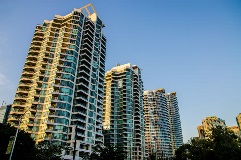
The GST Rebate for Rental Housing – How to Improve the Impact
Overview
By Robins Appleby Housing and Tax Teams
On September 14, 2023, the Government of Canada announced that it would introduce legislation to enhance the goods and services tax (“GST”) rental rebate on new purpose-built rental housing (the “Enhanced Rebate”). The Government of Canada said it hopes that the Enhanced Rebate will “incentivize construction of much-needed rental homes for Canadians.”
Draft legislation released on September 21, 2023 confirms that the Enhanced Rebate will be available for certain purpose-built rental projects if (i) “construction … begins” on or after September 14, 2023 and on or before December 31, 2030 and (ii) construction is substantially completed by December 31, 2035. The Government of Canada stated that the Enhanced Rebate will not apply to “individually-owned condominium units, single-unit housing, duplexes, triplexes, housing co-ops, and owned houses situated on leased land and sites in residential trailer parks.”
We have reviewed the Government of Canada’s announcement and the draft legislation. In an effort to ensure that the Enhanced Rebate effectively incentivizes construction of rental homes for Canadians as the Government of Canada intends, we wanted to raise three concerns for consideration by our readers – each intended to make the Rebate more effective at achieving its objective.
- Application/Retroactivity: the proposed legislation, as currently drafted, would only capture projects where construction begins on or after September 14, 2023. In other words, there would be purpose-built rental projects where construction has only recently begun—or where construction previously began but is now on hold for financial or other reasons—that would be ineligible for the Enhanced Rebate. As a result, the builders of early-stage and stalled projects would not be incentivized to continue or re-start construction on such purpose-built rentals, which is what the Government of Canada is seeking to encourage. Accordingly, without access to the Enhanced Rebate, such builders may instead discontinue their purpose-built rentals projects (and instead shift the development into a condominium development, for example).
Since existing stalled projects are the most “shovel ready” by definition, we recommend that the proposed amendments apply to them as well. Our suggestion is to either have the amendments (i) take effect retroactively to extend the Enhanced Rebate to early-stage purpose-built projects (for example, the Enhanced Rebate would apply to projects where construction began on or after January 1, 2023) or (ii) extend the Enhanced Rebate to any project completed on or after September 14, 2023 but on or before December 31, 2030 (i.e. completely remove the condition for a project start-date). Such change would be implemented by amending the dates in subsection 256.2(3.1) of the draft legislation. - Definition of Construction: the phrase “construction … begins” should be defined or clarified in the proposed legislation. Specifically, when construction of a project begins is subjective and may be further complicated where projects have multiple phases. Any ambiguity or uncertainty in the legislation should be avoided as to whether a builder qualifies for the Enhanced Rebate or not will be a fundamental consideration in whether such builder should continue/complete a purpose-built rental project or not. Accordingly, we recommend that the draft legislation be amended to define what constitutes the start of construction (e.g. whether construction begins when an agreement is entered into with a supplier or contractor, when ground is broken, etc.) and clarifies how projects with multiple phases can qualify for the Enhanced Rebate. Specifically, we recommend that the legislation be drafted to capture as many projects as possible so as to incentivize builders to begin or continue purpose-built rental projects in the early stages of construction. Such definition could be added in subsection 256.2(1) of the Excise Tax Act, or a separate subsection under section 256.2 could be added to clarify what constitutes the start of construction for the purposes of subsection (3.1). Of course, this change would not be necessary if our suggestion to focus on completion rather then start of construction is adopted.
- Application to Condominiums: as mentioned above, the Government of Canada stated that the Enhanced Rebate will not apply to, among other types of housing, “individually-owned condominium units”. However, such a carve out would exclude supplies of individual condominium units by builders that were made specifically for the purpose of providing long-term residential leases. For example, a builder may construct a condominium complex and then supply one or more units in the condominium complex to a municipality, which in turn leases the unit(s) to a non-profit corporation for the purpose of providing affordable housing. Based on the Government of Canada’s statement, such supply of a unit in the condominium complex would not be eligible for the Enhanced Rebate despite the supply being for the purpose of “providing rental homes for Canadians.” Accordingly, we recommend that the legislation include a list of “exceptions to the exception” that would capture certain supplies of residential units made specifically for the purposes of residential rental accommodation. It can be a condition in this context that a unit is subject to an agreement with the municipality assuring the use of the using for affordable housing and securing the benefit through a mortgage in the same manner as municipality secure affordability already. In this regard, the benefit would only extend to condominium units used to create affordable housing in accordance with the relevant municipal definitions.
These changes would allow the Rebate to push more projects into production, avoid punishing developers who have already proceeded, and, help municipalities create more below market housing.

/john-fox.tmb-0.jpg?sfvrsn=4c040103_2)
/michael-gasch.tmb-0.jpg?sfvrsn=512c2af0_3)